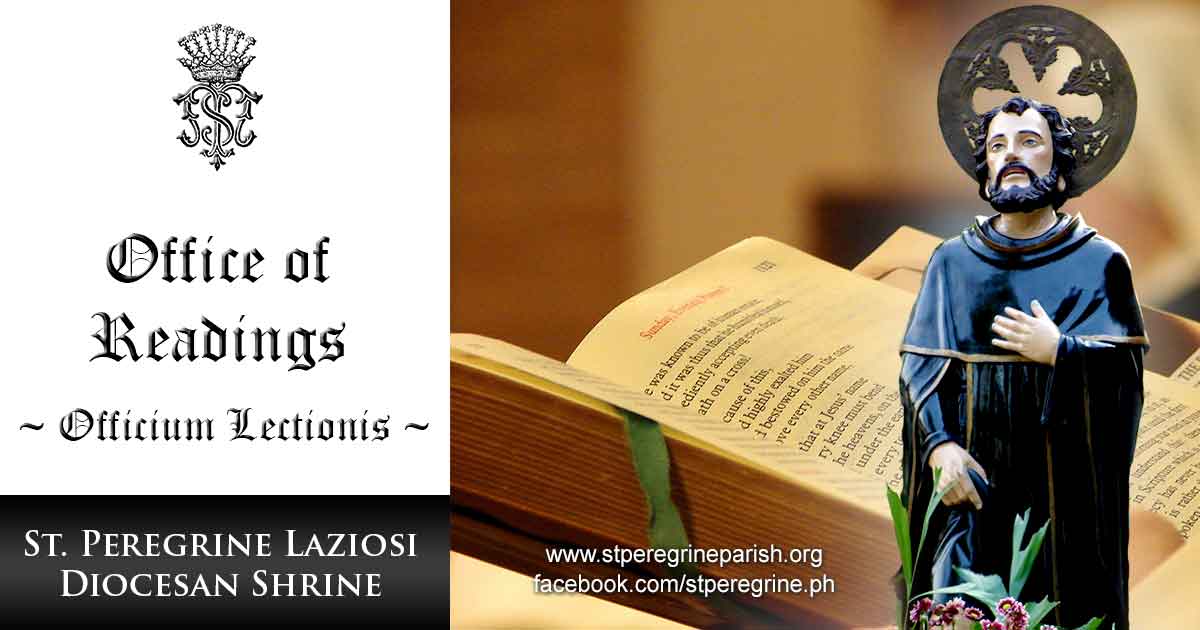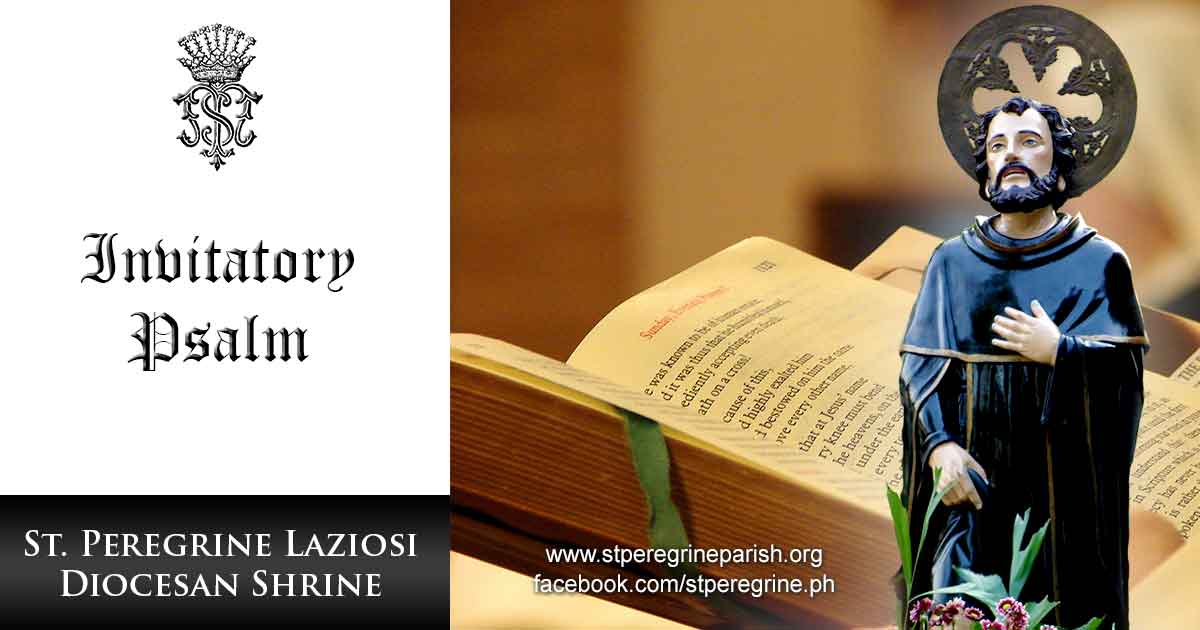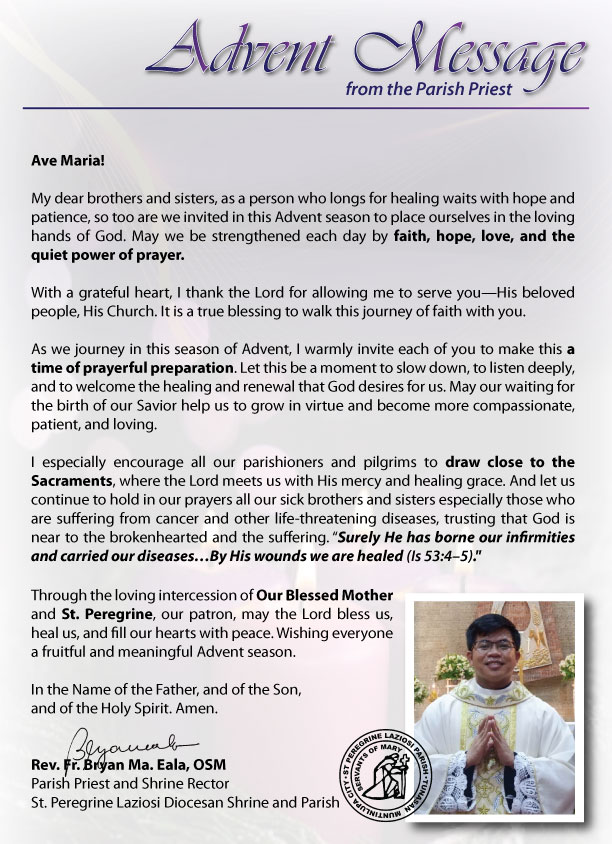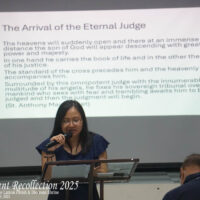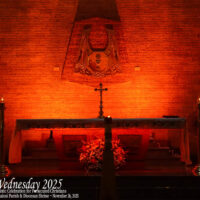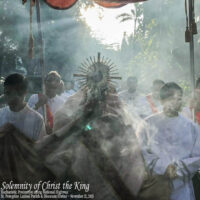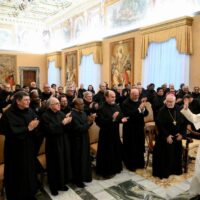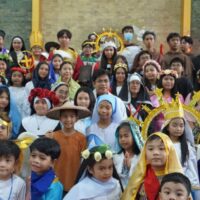Ribbon Placement:
Liturgy of the Hours Vol. II:
Ordinary: 1045
Proper of Seasons: 390
Psalter: Saturday, Week I, 1194
Office of Readings for Saturday of the 5th Week of Lent
God, come to my assistance.
— Lord, make haste to help me.
Glory to the Father, and to the Son, and to the Holy Spirit:
— as it was in the beginning, is now, and will be for ever. Amen.
HYMN
God of mercy God of grace
Hear our sad, repentant songs.
O restore Thy suppliant race,
Thou to whom our praise belongs!
Deep regret for follies past,
Talents wasted, time misspent;
Hearts debased by worldly cares,
Thankless for the blessings lent:
Foolish fears and fond desires,
Vain regrets for things as vain:
Lips too seldom taught to praise,
Oft to murmur and complain;
These, and every secret fault,
Filled with grief and shame, we own.
Humbled at Thy feet we lie,
Seeking pardon from Thy throne.
| 𝄞 | “God of Mercy God of Grace” by Rebecca Hincke • • Available for Purchase • Musical Score • Title: God of Mercy God of Grace; Text: John Taylor; Artist: Rebecca Hincke; (c) 2017 Surgeworks, Inc. • Albums that contain this Hymn: Hymns and Chants of Divine Office, Vol. 4 |
PSALMODY
Ant. 1 Sing praise to the Lord; remember the wonders he has wrought.
Psalm 105
The Lord is faithful to his promises
The apostles proclaim to the nations the wonders which God wrought when he came among us (Saint Athanasius).
I
Give thanks to the Lord, tell his name,
make known his deeds among the peoples.
O sing to him, sing his praise;
tell all his wonderful works!
Be proud of his holy name,
let the hearts that seek the Lord rejoice.
Consider the Lord and his strength;
constantly seek his face.
Remember the wonders he has done,
his miracles, the judgments he spoke.
O children of Abraham, his servant,
O sons of the Jacob he chose.
He, the Lord, is our God:
his judgments prevail in all the earth.
He remembers his covenant for ever,
his promise for a thousand generations,
the covenant he made with Abraham,
the oath he swore to Isaac.
He confirmed it for Jacob as a law,
for Israel as a covenant for ever.
He said: “I am giving you a land,
Canaan, your appointed heritage.”
When they were few in number,
a handful of strangers in the land,
when they wandered from country to country
and from one kingdom and nation to another,
he allowed no one to oppress them;
he admonished kings on their account:
“Do not touch those I have anointed;
do no harm to any of my prophets.”
Glory to the Father, and to the Son, and to the Holy Spirit:
— as it was in the beginning, is now, and will be for ever. Amen.
Ant. Sing praise to the Lord; remember the wonders he has wrought.
Ant. 2 The Lord did not abandon the good man who was sold into slavery, but freed him from the power of sinners.
II
But he called down a famine on the land;
he broke the staff that supported them.
He had sent a man before them.
Joseph, sold as a slave.
His feet were put in chains,
his neck was bound with iron,
until what he said came to pass
and the word of the Lord proved him true.
Then the king sent and released him;
the ruler of the peoples set him free,
making him master of his house
and ruler of all he possessed,
to instruct his princes as he pleased
and to teach his elders wisdom.
Glory to the Father, and to the Son, and to the Holy Spirit:
— as it was in the beginning, is now, and will be for ever. Amen.
Ant. The Lord did not abandon the good man who was sold into slavery, but freed him from the power of sinners.
Ant. 3 The Lord was true to his sacred promise; he led his people to freedom and joy.
III
So Israel came into Egypt,
Jacob lived in the country of Ham.
He gave his people increase;
he made them stronger than their foes
whose hearts he turned to hate his people
and to deal deceitfully with his servants.
Then he sent Moses his servant
and Aaron the man he had chosen.
Through them he showed his marvels
and his wonders in the country of Ham.
He sent darkness, and dark was made
but Egypt resisted his words.
He turned the waters into blood
and caused their fish to die.
Their land was alive with frogs,
even in the halls of their kings.
He spoke; the dog-fly came
and gnats covered the land.
He sent hail-stones in place of the rain
and struck flashing fire in their land.
He struck their vines and fig trees;
he shattered the trees through their land.
He spoke; the locusts came,
young locusts, too many to be counted.
They ate up every blade in the land;
they ate up all the fruit of their fields.
He struck all the first-born in their land,
the finest flower of their sons.
He led out Israel with silver and gold.
In his tribes were none who fell behind.
Egypt rejoiced when they left
for dread had fallen upon them.
He spread a cloud as a screen
and fire to give light in the darkness.
When they asked for food he sent quails;
he filled them with bread from heaven.
He pierced the rock to give them water;
it gushed forth in the desert like a river.
For he remembered his holy word,
which he gave to Abraham his servant.
So he brought out his people with joy,
his chosen ones with shouts of rejoicing.
And he gave them the land of the nations.
They took the fruit of other men’s toil,
that thus they might keep his precepts,
that thus they might observe his laws.
Glory to the Father, and to the Son, and to the Holy Spirit:
— as it was in the beginning, is now, and will be for ever. Amen.
Psalm-prayer
Abraham, Joseph and Moses prefigured your plan, Father, to redeem mankind from slavery and to lead them into the land of promise. Through the death and resurrection of your Son, your Church fulfills these promises. Grant us living water from the rock and bread from heaven, that we may survive our desert pilgrimage and thank you eternally for your kindness.
Ant. The Lord was true to his sacred promise; he led his people to freedom and joy.
Sacred Silence (indicated by a bell) – a moment to reflect and receive in our hearts the full resonance of the voice of the Holy Spirit and to unite our personal prayer more closely with the word of God and public voice of the Church.
The man of God welcomes the light.
— So that all may see that his deeds are true.
READINGS
First reading
From the letter to the Hebrews
8:1-13
The priesthood of Christ in the New Covenant
The main point in what we are saying is this: we have such a high priest, who has taken his seat at the right hand of the throne of the Majesty in heaven, minister of the sanctuary and of that true tabernacle set up, not by man, but by the Lord.
Now every high priest is appointed to offer gifts and sacrifices; hence the necessity for this one to have something to offer. If he were on earth he would not be a priest, for there are priests already offering the gifts which the law prescribes. They offer worship in a sanctuary which is only a copy and shadow of the heavenly one, for Moses, when about to erect the tabernacle, was warned, “See that you make everything according to the pattern shown you on the mountain.” Jesus has obtained a more excellent ministry now, just as he is mediator of a better covenant, founded on better promises.
If that first covenant had been faultless, there would have been no place for a second one. But God, finding fault with them, says:
“Days are coming, says the Lord,
when I will make a new covenant with the house of Israel
and with the house of Judah.
It will not be like the covenant I made with their fathers
the day I took them by the hand
to lead them forth from the land of Egypt;
For they broke my covenant
and I grew weary of them, says the Lord.
But this is the covenant I will make with the house of Israel
after those days, says the Lord:
I will place my laws in their minds
and I will write them upon their hearts;
I will be their God
and they shall be my people.
And they shall not teach their fellow citizens
or their brothers, saying, ‘Know the Lord,’
for all shall know me, from least to greatest.
I will forgive their evildoing,
and their sins I will remember no more.”
When he says, “a new covenant,” he declares the first one obsolete. And what has become obsolete and has grown old is close to disappearing.
RESPONSORY Hebrews 8:1-2; 9:24
We have a high priest, who ministers in the true sanctuary. He has taken his seat in the heavens at the right hand of the throne of divine Majesty
— to appear before God on our behalf.
Jesus did not enter into a man-made sanctuary, a mere copy of the real one, but into heaven itself.
— To appear before God on our behalf.
Second reading
From a homily by Saint Gregory Nazianzen, bishop
We are soon going to share in the Passover
We are soon going to share in the Passover, and although we still do so only in a symbolic way, the symbolism already has more clarity than it possessed in former times because, under the law, the Passover was, if I may dare to say so, only a symbol of a symbol. Before long, however, when the Word drinks the new wine with us in the kingdom of his Father, we shall be keeping the Passover in a yet more perfect way, and with deeper understanding. He will then reveal to us and make clear what he has so far only partially disclosed. For this wine, so familiar to us now, is eternally new.
It is for us to learn what this drinking is, and for him to teach us. He has to communicate this knowledge to his disciples, because teaching is food, even for the teacher.
So let us take our part in the Passover prescribed by the law, not in a literal way, but according to the teaching of the Gospel; not in an imperfect way, but perfectly; not only for a time, but eternally. Let us regard as our home the heavenly Jerusalem, not the earthly one; the city glorified by angels, not the one laid waste by armies. We are not required to sacrifice young bulls or rams, beasts with horns and hoofs that are more dead than alive and devoid of feeling; but instead, let us join the choirs of angels in offering God upon his heavenly altar a sacrifice of praise. We must now pass through the first veil and approach the second, turning our eyes toward the Holy of Holies. I will say more: we must sacrifice ourselves to God, each day and in everything we do, accepting all that happens to us for the sake of the Word, imitating his passion by our sufferings, and honoring his blood by shedding our own. We must be ready to be crucified.
If you are a Simon of Cyrene, take up your cross and follow Christ. If you are crucified beside him like one of the thieves, now, like the good thief, acknowledge your God. For your sake, and because of your sin, Christ himself was regarded as a sinner; for his sake, therefore, you must cease to sin. Worship him who was hung on the cross because of you, even if you are hanging there yourself. Derive some benefit from the very shame; purchase salvation with your death. Enter paradise with Jesus, and discover how far you have fallen. Contemplate the glories there, and leave the other scoffing thief to die outside in his blasphemy.
If you are a Joseph of Arimathea, go to the one who ordered his crucifixion, and ask for Christ’s body. Make your own the expiation for the sins of the whole world. If you are a Nicodemus, like the man who worshiped God by night, bring spices and prepare Christ’s body for burial. If you are one of the Marys, or Salome, or Joanna, weep in the early morning. Be the first to see the stone rolled back, and even the angels perhaps, and Jesus himself.
RESPONSORY Hebrews 13:12-13; 12:4
Jesus died outside the city gate to sanctify the people by his own blood.
— Let us go to him outside the camp and share the insult that was heaped on him.
You have not yet resisted sin to the point of shedding your blood.
— Let us go to him outside the camp and share the insult that was heaped on him.
CONCLUDING PRAYER
O God,
who have made all those reborn in Christ
a chosen race and a royal priesthood,
grant us, we pray,
the grace to will and to do what you command,
that the people called to eternal life
may be one in the faith of their hearts
and the homage of their deeds.
Through our Lord Jesus Christ, your Son,
who lives and reigns with you in the unity of the Holy Spirit,
God, for ever and ever.
— Amen.
ACCLAMATION (at least in the communal celebration)
Let us praise the Lord.
— And give him thanks.
The English translation of The Liturgy of the Hours (Four Volumes) ©1974,
International Commission on English in the Liturgy
Corporation. Readings and Old and New Testament Canticles (except the Gospel Canticles) are from the New American Bible
© 1970 Confraternity of Christian Doctrine, Washington, D.C.. Used with permission. All rights reserved.
The DivineOffice.org website, podcast, apps and all related media follows the liturgical calendar for the United States.
The 1970 edition of the New American Bible as published in the Liturgy of the Hours is approved for use
only in the United States. DivineOffice.org website, podcast, apps and all related media is © 2006-2021
Surgeworks, Inc. All rights reserved.
 Diocese of Parañaque
Diocese of Parañaque

